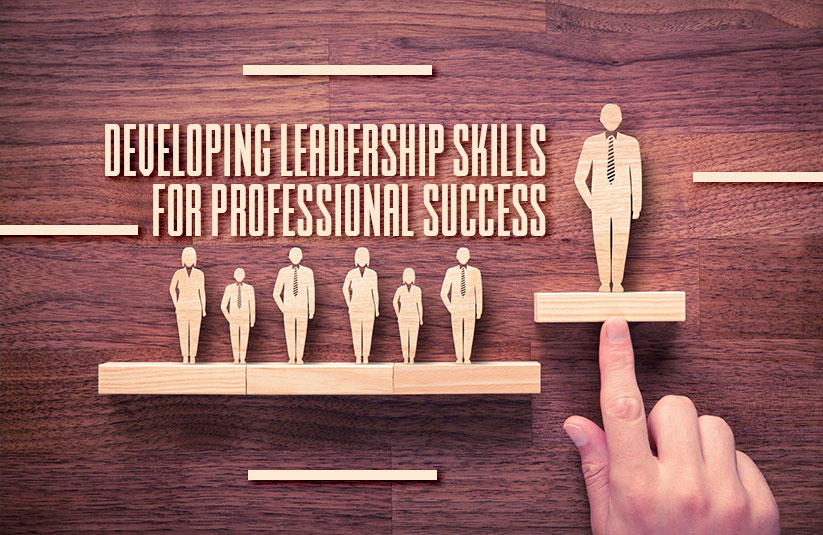Whether you are a seasoned professional or just starting your career journey, honing your leadership abilities is essential. Leadership extends beyond traditional hierarchical roles; it encompasses the capacity to inspire, guide, and influence others to achieve collective goals.
It’s important to recognize that leadership is not an innate trait; rather, it is a skill that must be cultivated. Leadership skills encompass the ability to organize teams to accomplish shared objectives, including key competencies such as communication, negotiation, self-management, decision-making, and more. Understanding the responsibilities that come with leadership is essential for achieving success in your profession.
Effective Communication
Strong communication skills are fundamental to efficient work management. As a leader, it is important to excel in various forms of communication, not only in face-to-face interactions but also through email, messaging platforms, and phone calls when dealing with team members and clients.
Leaders should actively listen to the questions and concerns raised by their employees and clients, as listening is a critical component of effective communication. The following skills are indispensable for effective communication: active listening, adeptness in business storytelling, clarity in expression, the ability to provide comprehensive explanations, adeptness in public speaking, skill in facilitating group discussions, and proficiency in both verbal and written communication.
Leadership and Creativity
Successful leaders must think outside the box to achieve their goals. Creativity is a valuable asset for any businessperson. When you cultivate creativity, you become a source of inspiration for your entire team. When embarking on a creative endeavor, it’s essential to explore all possible avenues that can enhance the organization’s performance.
The following skills are closely tied to creativity: critical thinking, curiosity, adaptability, imagination, keen observation, innovation, receptiveness to others’ opinions, visionary thinking, and the ability to generate successful business ideas.
Promoting Positivity
Positive thinking fosters a harmonious workplace environment and motivates employees to strive for excellence. The ability to find humor in one’s setbacks contributes to a healthy work-life balance and helps eradicate toxic workplace cultures.
As a leader, maintaining a positive attitude in all situations can be challenging, but it is crucial to avoid negatively influencing your team members’ mindsets. The following skills are essential for fostering a positive atmosphere: providing encouragement, displaying empathy, offering assistance to others, showing respect, and sharing positive energy with colleagues.
Motivation
Motivation is a highly effective skill that not only improves our own performance but also has a positive impact on our peers. Leaders must possess the ability to inspire their team members. It is well-established that motivating employees contributes to an increased rate of business success, enhances overall performance, and fosters innovation, ultimately creating a healthy corporate environment.
Recognizing employees’ intrinsic motivation to self-drive and enhance their productivity in their tasks is key. The following skill sets are related to motivation: mentoring, offering incentives, acknowledging employees’ contributions to tasks, expressing gratitude to teammates, and setting clear and achievable goals.
Feedback
Effective feedback plays a significant role in enhancing performance. Providing accurate feedback facilitates smoother collaboration within your team and organization. Providing well-informed guidance assists employees in making informed decisions at work.
Here are some essential aspects of providing feedback: offering clear guidance, ensuring clarity in communication, respecting workers’ opinions, providing specific recommendations, clearly articulating expectations, demonstrating sound decision-making skills, and building strong confidence among employees.
Team Building
Leaders must also possess the ability to develop effective team-building strategies. Team building requires proficient social skills and problem-solving techniques. A leader should be adept at building and collaborating with a team to achieve common goals.
Skills crucial for effective team building include conflict resolution, adaptability, effective verbal and non-verbal communication, technical management skills, active listening, and maintaining a positive attitude.
Read Here: Key Strategy to Improve Workplace Engagement and Productivity
Conclusion
Developing leadership skills is a crucial step towards achieving professional success. Effective leadership goes beyond managing teams; it involves inspiring and guiding others, fostering collaboration, and adapting to evolving challenges. By honing skills such as communication, empathy, strategic thinking, and adaptability, individuals can become not only proficient leaders but also valuable assets to their organizations. Ultimately, investing in leadership development is an investment in personal growth, career advancement, and the ability to make a lasting positive impact on both professional and personal spheres.
FAQ
What are the most important skills needed for effective leadership?
Excellent communication skills, flexibility, positivity, creativity, decision-making skills, conflict management, and relationship building. These are the skills that are important for developing leadership quality.
What qualities make successful leaders stand out?
Focus, humility, innovation, empathy, effective communication, patience, and problem-solving skills make leaders more successful.
What strategies can be used to manage stressful work situations?
To manage stressful work situations, strategies like mindfulness, time management, setting boundaries, and seeking support from colleagues or professionals can be effective.













